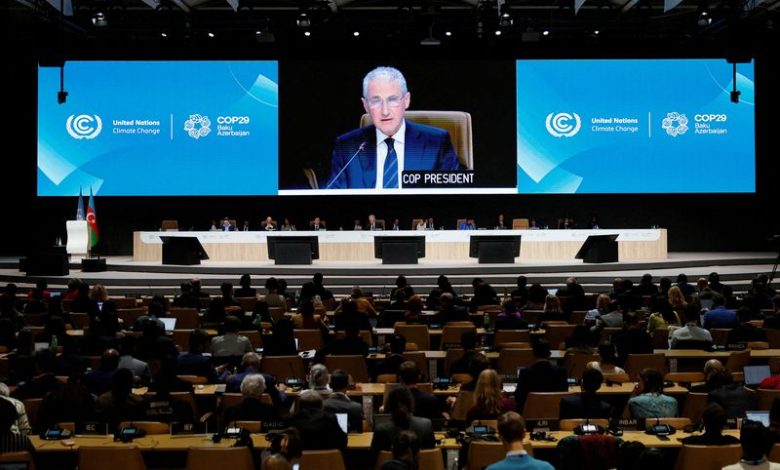Analysis-Business seeks details in face of mixed COP29 climate messages

By Simon Jessop, Karin Strohecker and Virginia Furness
BAKU (Reuters) – COP29 deals on finance and carbon markets could lead to billions more dollars flowing around the business world if countries next year can deliver climate plans with clear policies for markets and investment.
Those plans, which are due to the climate body of the United Nations before the next U.N. climate summit in Brazil, need to describe steps for making projects realistic – and less risky.
Yet questions remain on the pace of transition after some countries sought to slow down the world’s shift from fossil fuels, giving boards already wrestling with the implications of Donald Trump returning to the U.S. presidency even more tough questions to ponder.
Two weeks of acrimonious negotiations in Azerbaijan’s capital Baku resulted in a deal for $300 billion in annual climate finance by 2035. Many developing countries said the pledge would not be enough to help them deliver robust national climate plans.
While private sector investment was teased throughout the summit – including in a multilateral development bank pledge to mobilise $65 billion of it each year – the devil will be in the details.
Some of those details could come up in discussions between countries in the run-up to next year’s COP30 summit, where they will be mapping out their next set of emissions-cutting plans.
Countries are meant to submit their national climate plans in February, but many have said they will miss the deadline.
Businesses have called for those plans to include projects and efforts that are “investment ready” – and with as much specificity as possible – to help investors gauge their long-term commitments and risks.
Money will start flowing only after the shared goals agreed at events like COP29 are translated into “regulation, legislation and other policy measures”, said Thomas Tayler, head of climate finance at asset manager Aviva Investors.
Equally important will be showing commitment to implementing these policies and rules and reporting on their progress, Tayler said.
MIXED ENERGY MESSAGES
While climate negotiations are hard going even at the best of times, the latest round began in Baku only a week after Trump, a climate denier, won the Nov. 5 U.S. presidential election. Few expect Trump to deliver climate finance from the world’s biggest economy or to protect U.S. policies friendly for climate investment.
While countries at COP29 set the new $300 billion climate finance target, they guaranteed the sum only by 2035, though they pledged to prioritize the most vulnerable nations for those funds.
Source link






